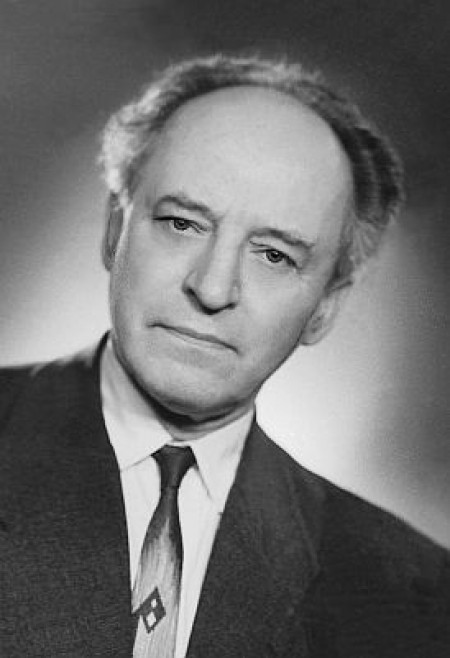
1 October 1899, Budapest – 18 November 1986, Budapest
Lajos Bárdos, one of the determining personalities of the history of 20th century Hungarian music, taught for forty years at the Music Academy. Having been a composer, conductor and musicologist, he possessed a rare synthesis of the theoretical and practical approaches to music, and this knowledge was accompanied by an exceptional pedagogical sense. He was a legendary teacher, who educated his pupils in strict and consequent thinking. His classes were extremely concentrated, but at the same time suffused with wit and humour. In the course of the decades, he taught many subjects within the spheres of church music, the training of choir masters and musical theory. Because of their originality, an outstanding place is occupied among these by the study of prosody, based on a profound knowledge of Hungarian literature and Hungarian music, and historical music theory, constructed on the basis of an individual concept. Bárdos, even before the appearance of the source books and critical editions widely available today, developed with pioneering work the theoretical aspects of renaissance music. His courses about the harmonic world of romanticism (Schubert, Chopin, Liszt) remained unforgettable for all his students.
The young Lajos Bárdos studied composition with Albert Siklós and Zoltán Kodály, and after graduation became one of the leading personalities in the mushrooming Hungarian choir movement. Having joined the 19th century Cecilian trend, he became the choir master of the Cecilia choir (1925-42) and of the Palestrina choir (1923-33). When the two choirs united as the Budapest Choir, he was its choir master from 1941 till 1947. The Hungarian premier of Stravinsky's Symphony of Psalms in 1932, performed by the Palestrina choir and the Concert Orchestra, is connected with his name. He founded (with Gyula Kertész) the journal and publishing house, Magyar Kórus (Hungarian Choir), which was very significant in its time (1931-50), providing a rich repertoire of the works for Hungarian ensembles. By creating the Singing Youth movement (Éneklő Ifjúság mozgalom), he endeavoured to provide guidance for choirs for children and young people.
In the special, complex personality of Lajos Bárdos, the popular educator speaking everyone's language coexisted well with the performer creating productions of the highest level. He tirelessly toured the country till his old age, giving lectures and consultations on the questions of music education and the training of choirs. Nonetheless, at the height of his artistic career, he gave interpretations that served as models when, as the choir master of the St Matthias church in Buda Castle (1942-62), he performed such great works as Beethoven's Missa Solemnis, Liszt's Coronation Mass, and Kodály's Budavári Te Deum. It is an irreparable loss that no recordings were made of these great performances.
The composer Bárdos concentrated primarily on vocal works. His church compositions (four Masses, motets, etc) were inspired by the Gregorian and the Palestrina styles, as were his works setting Hungarian poetry to music and arranging Hungarian folk music. Of his choir works with orchestral accompaniment, The song of a rabbit (A nyúl éneke), for double choir, is the most outstanding; his choir works for children, his canons, and his series composed in part with a pedagogical intent, have retained their freshness to this day.
The profile of the musicologist Bárdos emerges from monographs and studies amounting to several volumes, and countless shorter pieces. His thinking, which grasped the essence of phenomena and was highly organised, dealt with a multitude of questions in the sphere of music theory, from issues of rhythm, melody and harmony to those of form and prosody. In his theoretical work, outstanding attention was given to the modal style (Modal harmonies – Modális harmóniák, 1961), to Liszt's innovative language (Ferenc Liszt, the musician of the future – Liszt Ferenc, a Jövő zenésze, 1976), and to Bartók and Kodály's art.
He was awarded the Kossuth Prize in 1955.
Lajos Bárdos was given an honorary doctorate by the Music Academy; several schools and choirs bear his name. The Bárdos Society, founded in 1988, organises national events propagating awareness of his life's work.
K. K.


